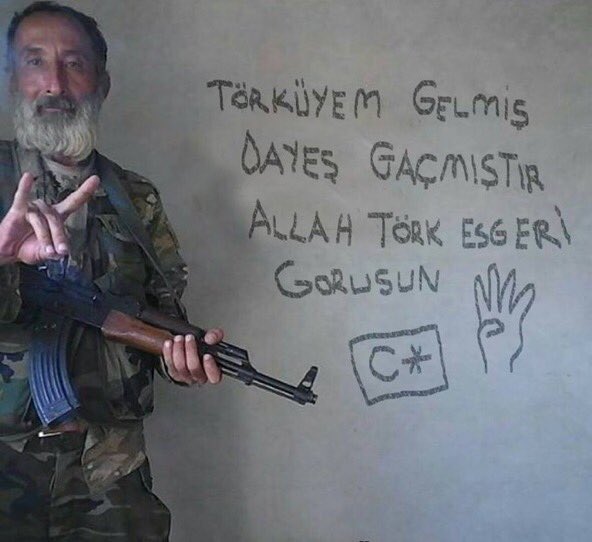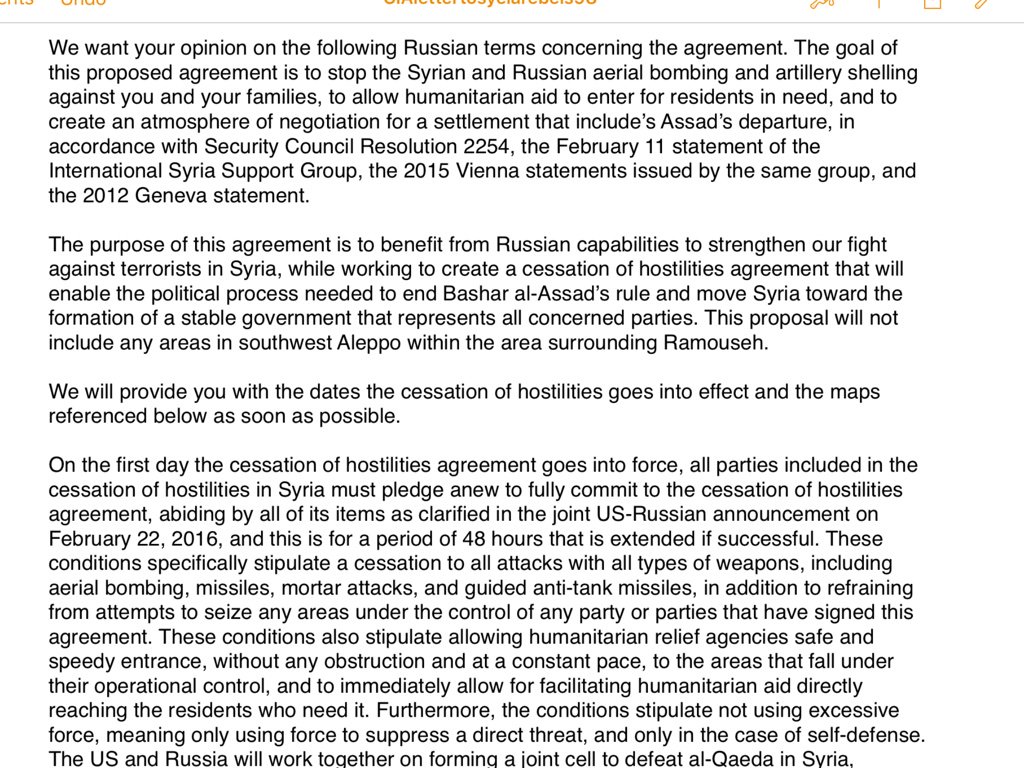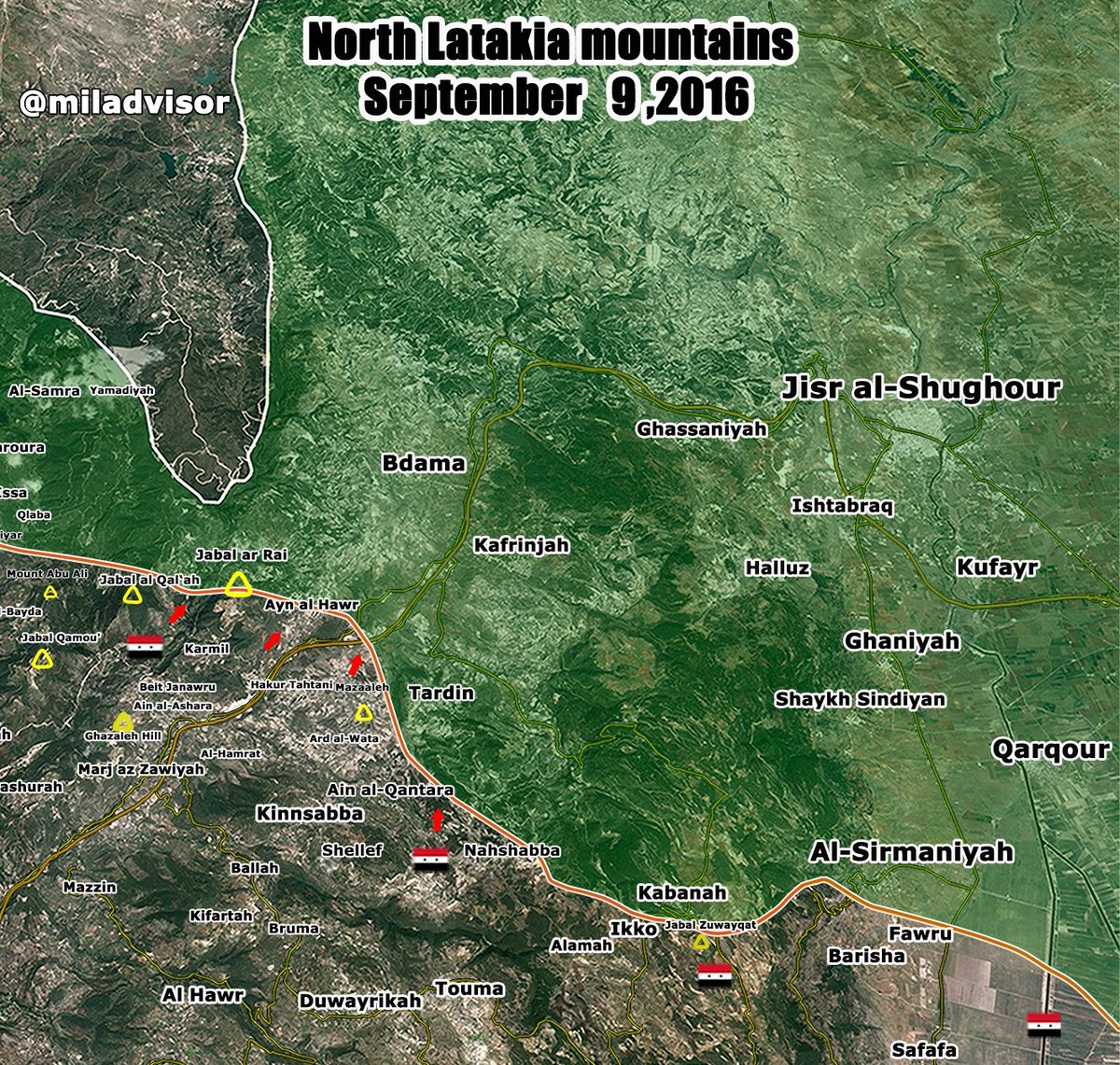bayraktar tb2 with two laser guided missiles


http://aa.com.tr/en/americas/turkey-s-s ... -us/643499Turkey's Erdogan Announces 'Largest Operation in History' Against Kurds, as 11,000 Teachers Suspended
Turkey’s Syria move sets conditions for freeing Raqqa: US
Saudi Arabia cannot pay its workers or bills – yet continues to fund a war in Yemen
In Saudi Arabia itself, the government seems unable to cope with the crisis. The 'Arab News' says that 31,000 Saudi and other foreign workers have lodged complaints with the government’s labour ministry over unpaid wages. On one occasion, the Indian consulate and expatriates brought food to the workers so that their people should not starve
Robert Fisk
Jeddah, Saudi Arabia Wikipedia
Almost exactly a year after Salman bin Albdulaziz Al Saud, king of Saudi Arabia, Custodian of the Two Holy Mosques and head of the House of Saud, hurriedly left his millionaire’s mansion near Cannes with his 1,000 servants to continue his vacation in Morocco, the kingdom’s cash is not flowing so smoothly for the tens of thousands of sub-continental expatriates sweating away on his great building sites.
Almost unreported outside the Kingdom, the country’s big construction magnates – including that of the Binladen group – have not been paid by the Saudi government for major construction projects and a portion of the army of Indian, Pakistani, Sri Lankan and other workers have received no wages, some of them for up to seven months.
Indian and Pakistani embassies approached the Saudi government, pleading that their workers should be paid. Economists who adopt the same lickspittle attitude towards the Saudi monarchy as the British Government, constantly point out that the authorities have been overwhelmed by the collapse of oil prices. They usually prefer not to mention something at which the rest of the world remains aghast: deputy crown prince and defence minister Mohamed bin Salman’s wasteful and hopeless war in Yemen. Since the king’s favourite son launched this preposterous campaign against the Houthis last year, supporting the internationally recognized Yemeni president against Shia Muslim rebels, aircraft flown by Saudi and Emirati pilots (aided by British technical “experts” on the ground) have bombed even more hospitals, clinics and medical warehouses than America has destroyed in Serbia and Afghanistan combined since 1999.
Theresa May claims selling arms to Saudi Arabia helps 'keep people on the streets of Britain safe'
The result? A country with 16 per cent of the world’s proven oil reserves, whose Aramco oil company makes more than $1bn a day and now records a budget deficit of $100bn, cannot pay its bills. At first, the Yemen fiasco was called “Operation Decisive Storm”, which – once it proved the longest and least decisive Arab “storm” in the Middle East’s recent history – was changed to “Operation Restore Hope”. And the bombing went on, just as it did in the pre-“hope” “storm”, along with the help of the UK’s “experts”. No wonder the very same deputy crown prince Mohamed announced this year that state spending on salaries would be lowered, yet individual earnings would rise.
In Pakistan, whose soldiers make up a large number of the “Saudi” armed forces, there has been outrage, parliamentarians are asking why three Saudi companies have not paid salaries for eight months, refusing even to provide food for their employees. In some cases, the Pakistanis have paid their own nationals for food supplies.
In Saudi Arabia itself, the government seems unable to cope with the crisis. The Arab News says that 31,000 Saudi and other foreign workers have lodged complaints with the government’s labour ministry over unpaid wages. On one occasion, the Indian consulate and local Indian expatriates brought food to the workers so that their people should not starve. The overall figure that the government owes the construction companies owed may be billions of dollars.
Overtly xenophobic comments have emerged in the Saudi press. Writing in the Saudi Gazette, Abdulrtahman Saad Al-Araabi said: “Many expats hate us and are angry because we are a rich country. Some of them go so far as to say that we, Saudis, do not deserve these blessings and the money we have. That is the reason why some of them become violent when they do not get paid on time.”
10 examples of Saudi Arabia's human rights abuses
Well, I suppose some people are paying a lot of cash to the Jabhat al-Nusra (recently re-named Jabhat Fateh al-Shamal-Nusrah) or Al-Qaeda or Isis lads out there in the line of fire in Syria.
Embassy staff from the Philippines, France and many countries in the Middle East, have raised the problems with the Saudi government. Typical of their responses has been that of Saudi Oger which said it had been “affected by current circumstances [sic] which resulted in some delays in delays in fulfilling our commitments to our employees”.
The Saudi government insisted the company paid its employees. Many of them, it should be added, are Lebanese whose Sunni Muslims come from the Sunni areas of Lebanon who traditionally vote for the Sunni leader’s son Saad.
An official of the company made the extraordinary statement that “the company’s situation is unstable due to the scrapping [sic] of many of its projects it was to execute,” Meanwhile, workers at United Seemac construction company are complaining they have not been paid for months – or even granted permission to leave the country. Some had apparently not been paid for more than a year and a half. Unlike the big companies such as Binladen and Oger, these men – and they are indeed mostly men – are consumed into the smaller employees. “All the attention is on the big companies – it’s easy to ignore us because we are not so many people.”
All in all, a dodgy scenario in our beloved monarchy-dictatorship, whose war against the Shia Houthis – and the Shia Hezbollah, the Shia/Alawite regime in Damascus and Iran – is unending. Wasn’t there an equally dodgy Al-Yamamah arms deal with the Saudis a few years ago? No cash flow problems then. And what does “yamamah” mean in Arabic? “Dove”? Let us go no further.
More about: Saudi ArabiaJabhat al-NusraIsis
the offensive units are 4th Mechanized based in Alepp, homs, & Golan. Republican guards and Tiger forces formed out of 4th Mechanized after desertions. Their total number will come to 50,000 but these are distributed from damascus to Israel border, golan, DeZ, homs, Latakia & Aleppo. Closure of any one front frees up troops for other ops.Singha wrote:Only some units like tigers, zahreddine, 4th repub guard , sukr al sahra and magaweer al bahr probably in number less than 5000 total is trained equipped and motivated for professional fighting on saa side

Nearly four years after NATO-backed rebels toppled the former Libyan ruler Muammar Gaddafi, the North Africa country has plunged into chaotic unrest.
The failure of last year’s election to achieve political unity in Libya was most evident when Fajr Libya, or “Libya Dawn” — a diverse coalition of armed groups that includes an array of Islamist militias — rejected the election’s outcome and seized control of Tripoli. The internationally recognized government relocated to Tobruk, situated in eastern Libya along the Mediterranean coast near the Egyptian border, while Libya Dawn set up a rival government, known as the new General National Congress, in the capital.
As forces aligned with the Tobruk government have fought Libya Dawn, the conflict has gradually become internationalized. Egypt and the United Arab Emirates have launched air strikes targeting Libya Dawn, while Turkey, Qatar, and Sudan are believed to have provided the Islamist-dominated coalition with varying degrees of support.
The emergence of Daesh (the so-called “Islamic State”) in strategically vital areas of Libya has further complicated the conflict in Africa’s most oil-rich country and raised security concerns in nearby states.
Libya’s Most Polarizing General
The mercurial general Khalifa Belqasim Haftar has emerged as an influential, yet highly divisive, leader in this bloody conflict.
In early March, the anti-Islamist general was appointed commander of the armed forces loyal to the Tobruk government. Haftar’s role in the former Gaddafi regime, his cozy relationship with Washington, and suspicions about his long-term ambitions have given him a controversial reputation among many Libyans. Nonetheless, he’s also gaining respect from those who share his vitriol for Islamists.
Haftar was an early Gaddafi loyalist, and played an important role as one of the “Free Officers” in the 1969 revolution that toppled the monarchy led by King Idris al-Sanusi. Gaddafi later said that Haftar “was my son… and I was like his spiritual father.” It was the start of a military career in which Haftar fought on many different sides.
During the Arab-Israeli war of 1973, Haftar led a Libyan battalion. Later, as a commander of Libyan forces in the country’s 1980-1987 war with Chad, he was allegedly responsible for war crimes when his forces were accused of using napalm and poison gas.
In 1987, the Chadian military scored a major victory in the battle of Wadi al-Doum. In addition to killing more than 1,000 Libyan forces, Chad took over 400 Libyans, including Haftar, as prisoners.
Around that time, Haftar’s loyalties shifted.
While held in Chad, Haftar worked with other Libyan officers to coordinate a coup against Gaddafi, before the United States secured his release — by airlifting him and 300 of his men to Zaire (now the Democratic Republic of the Congo), and from there to Virginia.
As a newly minted U.S. citizen, Haftar lived in northern Virginia from 1990 to 2011, spending part of this time working with the CIA before returning to Libya in March 2011 to fight once again against the Gaddafi regime. Several sources insist that Haftar was out of the CIA’s hands by 2011, but others maintain that the U.S. government orchestrated his return to Libya that year.
Libya’s Civil War
Last year, Haftar called for the unilateral dissolution of Libya’s parliament and the establishment of a “presidential committee” to rule the country until new elections were held. Haftar cited Libya’s “upheaval” as justification for the armed forces to take over.
Many saw his act as an attempted military coup aimed at crushing the Muslim Brotherhood, which had won second place in Libya’s 2012 elections. Prime Minister Ali Zeidan dismissed his announcement as “ridiculous”.
Although many in Libya’s government viewed him as a rogue general hungry for power, his ongoing campaign against Islamist forces has gradually won him supporters. Last May, Haftar waged a campaign called “Operation Dignity” to “eliminate extremist terrorist groups” in the country. Since then, the Tobruk-based government has by and large come to support the general, viewing him as the government’s best bet in the struggle against its Islamist enemies.
Haftar’s anti-Islamist crusade parallels that of Egyptian President Abdel Fatah el-Sisi, who is presiding over a crackdown on Egypt’s Islamists. In making no distinction between so-called moderate Islamists like the Muslim Brotherhood and hardline factions such as Daesh and Ansar al-Sharia (an al-Qaeda affiliate), Haftar and Sisi are both selling a narrative to the West that their anti-Islamist positions are in sync with the “global war on terror.”
So far, Haftar has been unwilling to negotiate with Libya Dawn — which contains the Libyan Muslim Brotherhood’s political wing and the “Loyalty to Martyrs” bloc within its coalition. In turn, Libya Dawn refuses to negotiate with Haftar.
The United Nations has begun hosting talks in Morocco between Libya’s various political factions in an effort to unite them against the growing threat of Daesh. Unfortunately, the UN’s efforts to push Libya’s two governments toward dialogue is undermined by the low levels of trust between them, and their mutual belief that only through continued armed struggle can they secure more territory and resources. Indeed, with strong backing from Cairo and Abu Dhabi, Haftar is likely convinced that he can make greater gains through warfare than diplomacy.
The toxic legacy of Gaddafi’s divisive and authoritarian regime, which pitted Libya’s diverse factions against one another, has plagued the prospects for any central authority gaining widespread legitimacy in the war-torn country. Indeed, since he was overthrown in 2011, Libya has turned into a cauldron of anarchy, with little meaningful security existing outside of Tripoli and Benghazi.
Gaddafi’s regime harshly oppressed the Islamist groups that went on to form Libya Dawn, which views its rise to power in Tripoli as hard fought and a long time in coming. They view Haftar as a war criminal from the ancien regime committed to their elimination, which will certainly undermine the potential for Libya’s two governments to reach a meaningful power-sharing agreement. With no peace in sight, a continuation of the bloody stalemate between the Tobruk and Tripoli-based governments seems most likely.
International Implications of Libya’s Turmoil
The fall of Gaddafi launched a geopolitical tsunami across Africa and into the Middle East.
Libya is now home to the world’s largest loose arms cache, and its porous borders are routinely transited by a host of heavily armed non-state actors — including the Tuareg separatists and jihadists who forced Mali’s national military from Timbuktu and Gao in March 2012 with newly acquired weapons from Libya. The UN has also documented the flow of arms from Libya into Egypt, Gaza, Niger, Somalia, and Syria.
Last October, 800 fighters loyal to Daesh seized control of Derna near the Egyptian border, some 200 miles from the European Union. Since then, Daesh’s Libyan branch has taken control of Sirte and gained a degree of influence in Benghazi, the nation’s second largest city and heart of the 2011 uprising against Gaddafi.
The group’s use of Libyan territory to terrorize and threaten other states has raised the international stakes. In February, Daesh beheaded 21 migrant workers from Egypt because they were Coptic Christians, then released a propaganda video containing footage of the heinous act. That lured Egypt into waging direct air strikes against the group’s targets in Derna.
Last November, Ansar Bait al-Maqdis — the dominant jihadist group in the Egyptian Sinai —pledged allegiance to Daesh, as did Nigeria’s Boko Haram more recently. Daesh has also made direct threats against Italy, prompting officials in Rome to warn that Italy’s military may intervene in Libya to counter Daesh’s fighters.
One quarter of Daesh’s fighters in Derna come from other Arab countries and Afghanistan. A major influx of Jabhat al-Nusra fighters from Syria have also entered the fray in Libya, underscoring how Islamist extremists from lands far away have exploited Libya’s status as a failed state. This development was most recently underscored when a Sudanese member of Daesh’s Libya division carried out a suicide attack on April 5th, which targeted a security checkpoint near Misrata. The bloody incident resulted in four deaths and over 20 injuries.
The number of weak or failing states across Africa suggests that such international networks will continue to take advantage of frail central authorities and lawlessness throughout the extremely underdeveloped Sahel and other areas of the continent to spread their influence. In the absence of any political resolution to its civil war, Libya in particular — as a failed state with mountainous oil reserves — will remain vulnerable to extremist forces hoping to seize power amidst the ongoing morass.
Giorgio Cafiero is Co-Founder of Gulf State Analytics. Daniel Wagner is CEO of Country Risk Solutions.

Russia and the United States Reach New Agreement on Syria Conflict
The whole thing is laughable.The key element is that Russia must then restrain the forces of President Bashar al-Assad of Syria from conducting any air operations over areas held by Nusra and other opposition forces. The United States hopes this will end the indiscriminate dropping of barrel bombs — including chlorine gas attacks — that have punctuated the conflict.
In return, the United States is to persuade the opposition groups it has been supporting to separate themselves from the Nusra forces. Mr. Assad has attacked many of them on the pretense of attacking Nusra fighters.

Talks on the project were halted last year after Turkey shot down a Russian air force jet and Russia retaliated with trade sanctions but since then Moscow and Ankara have made significant progress to mend relations.

The US is confusing international order with an “American” one, said Russian Defense Minister Sergey Shoigu, questioning Washington’s policies. It comes in response to Ash Carter’s accusations that Moscow wants to erode the principles of international order.
In the statement, Shoigu noted that numerous US-led interventions have actually contributed to the security challenges that the international community is currently facing.
“It is the United States, alongside their Western partners, who have been consistently destroying the basic foundations of the existing world, starting with Bosnia, Kosovo to Iraq and Libya”.
Shoigu’s statement comes in response to the comments made by US counterpart Ash Carter, who accused Russia of aiming to change the world order. Speaking to students at Oxford University on Wednesday, Carter did not mince his words, saying that Moscow pursues a “clear ambition to erode the principled international order.”
While acknowledging that Washington “does not seek an enemy in Russia,” he, among others, accused Moscow of “nuclear-saber-rattling” and territorial violations.
Addressing Carter’s comments, Shoigu said that Russia had warned what the outcome would be of the US-led NATO bombardment of the former Yugoslavia in 1999.
Shoigu said, “since then we only see that every time [the US] is stepping on the same rake in Iraq, Afghanistan, Libya, other countries,” and that the Pentagon, “instead of drawing lessons,” simply continues with its practices.
“Maybe it is time for the Pentagon to change something in that ‘strategy’? In order not justify in front of every microphone its failures by blaming everything on Russia, China and other countries with an independent outlook”.
Shoigu concluded that “maintaining international order” is a task for the whole international community and “not only of the Pentagon.” According to him this view remains a guiding principle for the Russian government.
“The sooner our US colleagues will realize that and start changing”, the sooner it will help resolve the existing problems, including Syria and elsewhere.